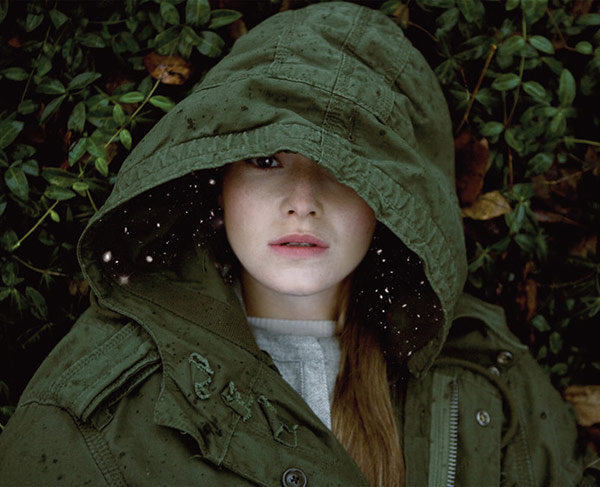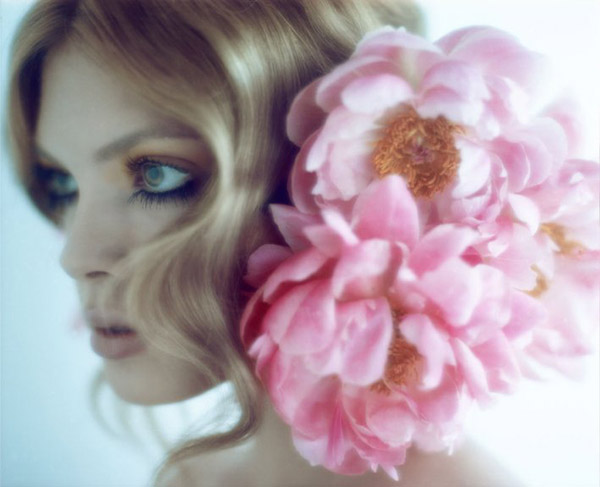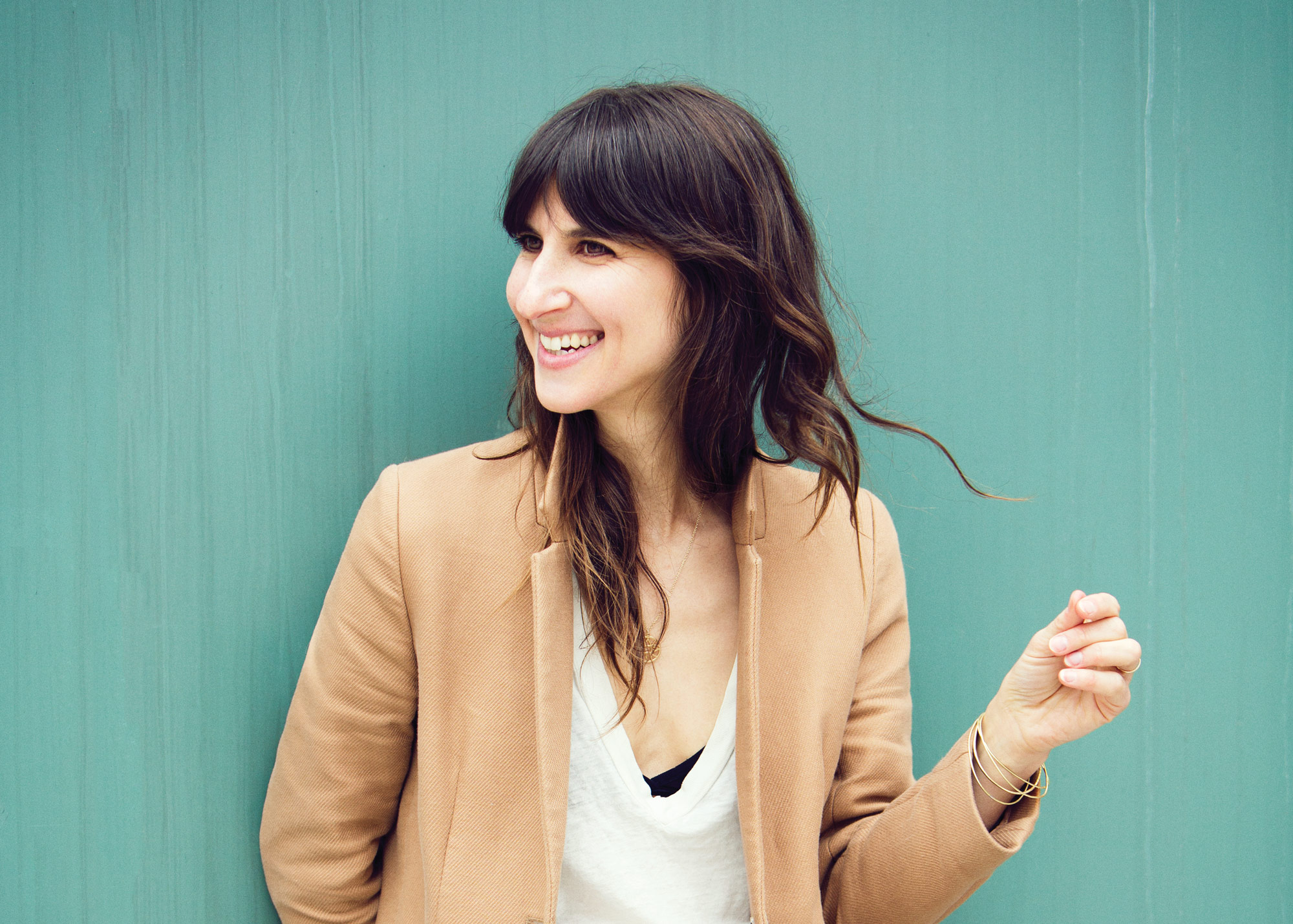
- Interview by Ryan & Tina Essmaker April 24, 2012
Anna Wolf
- photographer
Born and raised in southern California, Anna Wolf loves the sun and warm weather. After graduating from Art Center College of design, she spent a year in Mexico City learning Spanish and taking pictures. Anna now splits her time between Los Angeles and New York where she shoots for a variety of advertising and editorial clients.
Interview
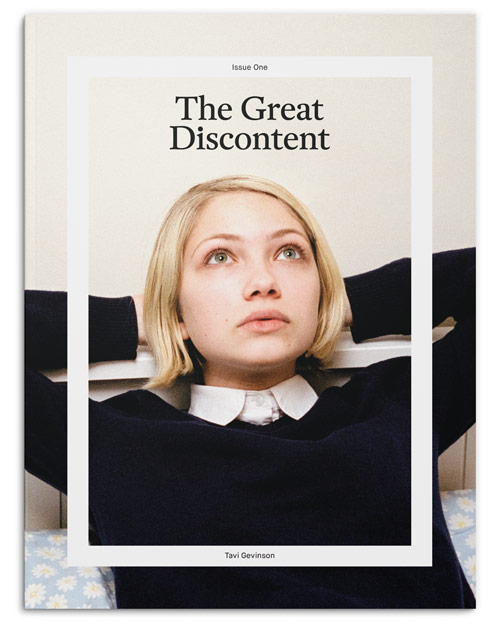 Editor’s note: An updated version of this interview, including new images and work, is featured in print in The Great Discontent, Issue One, available in our online shop.
Editor’s note: An updated version of this interview, including new images and work, is featured in print in The Great Discontent, Issue One, available in our online shop.
Describe your path to becoming a photographer?
I started taking pictures in high school. At first, I did it for fun, but then I started spending a lot of time with it because I wasn’t really good with other aspects of school. I sucked at science and math. Not everyone is super academic and I think I got lucky to find something early on that I loved.
At that time, I didn’t realize you could have a career being a photographer. I never made the connection that somebody got paid to shoot the photographs in magazines or on billboards. That didn’t align for me at all and I didn’t have anyone in my life who could articulate those things to me, so it took a while for me to have that realization.
After high school, I took some undergrad classes at San Francisco State for two years and then it was time to make a decision. I realized that if I wanted to do photography in a real way, I had to get out of there. Everyone there would sit around the darkroom and talk about going to art school like it was this crazy, impossible thing. Prior to that, I didn’t know that art school existed, so I started looking into it.
I decided to go to Art Center College of Design partly because they offered business classes to teach marketing and self-promotion—things that I thought would help me be a successful photographer once I got out of school. I could have gone somewhere like Cal Arts where you take pottery and all these creative classes, but I wanted to know how that was going to help me get a job when I was out of school and $100,000 in debt. I wanted to go to a place that was really serious about commercial photography—so I did. After graduation, I moved to Mexico City for a year and then came to New York. I’ve been here for seven years now.
Ryan: What was the draw to go to Mexico City—just wanting to get out of the country for a bit?
No. I actually think I was Latina in a previous life. (laughing) I’ve always wanted to learn Spanish and since I’m from Southern California, I grew up surrounded by Latino culture. I dated a Guatemalan guy for a while in high school; almost half of my high school spoke Spanish; Mexican food was everywhere; Hispanic culture was just such a huge part of my life.
I knew I was going to move to New York after college. I had just gotten out of a relationship and was getting rid of all of my stuff so that I could make the cross-country move and Mexico felt like it had to be “now or never”. I knew I wasn’t going to want to spend years getting my career off the ground in NY and then pick up and move to another country, so I just made Mexico happen then.
Living in Mexico after college was great because while all my friends were freaking out about how they were going to make a living and be successful, I was freaking out about leaving the house and ordering a taco. It was a different type of freak-out. It gave me room to do something different—instead of going straight from school into this incredibly scary thing, I went into this other scary thing. It was the best and worst time of my life. I didn’t know anybody and didn’t speak Spanish; it was challenging and lonely. I cried for two weeks when I got there and it was pretty gnarly to say the least, but totally amazing. I told myself, “I’m only going to go for six months, but if I really like it, I’ll stay for a year.” I ended up staying for a year.
My Spanish kind of sucks now. Most of the Spanish in New York is Dominican and Puerto Rican—it’s a different world with the slang, accents, and expressions. I can’t do it. But I went to Guatemala recently on a job and my Spanish came back like that. (snapping her fingers)
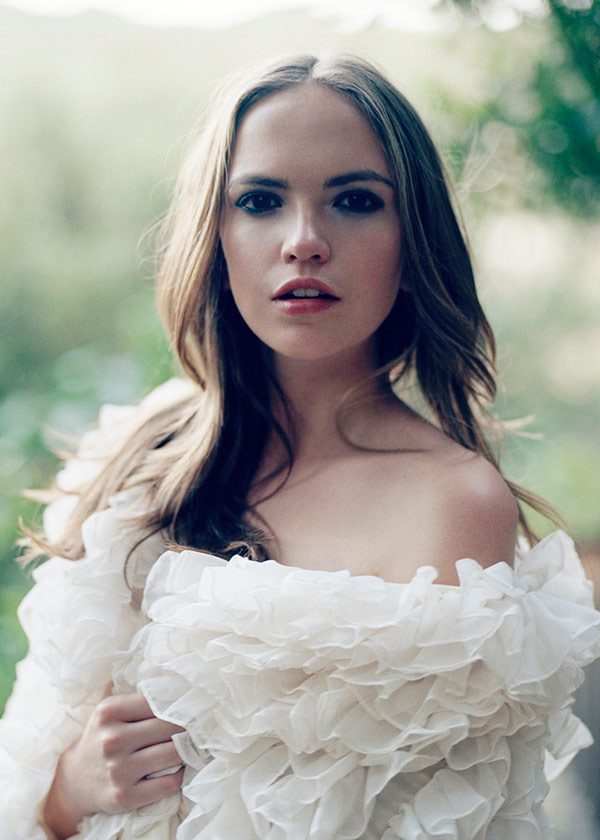
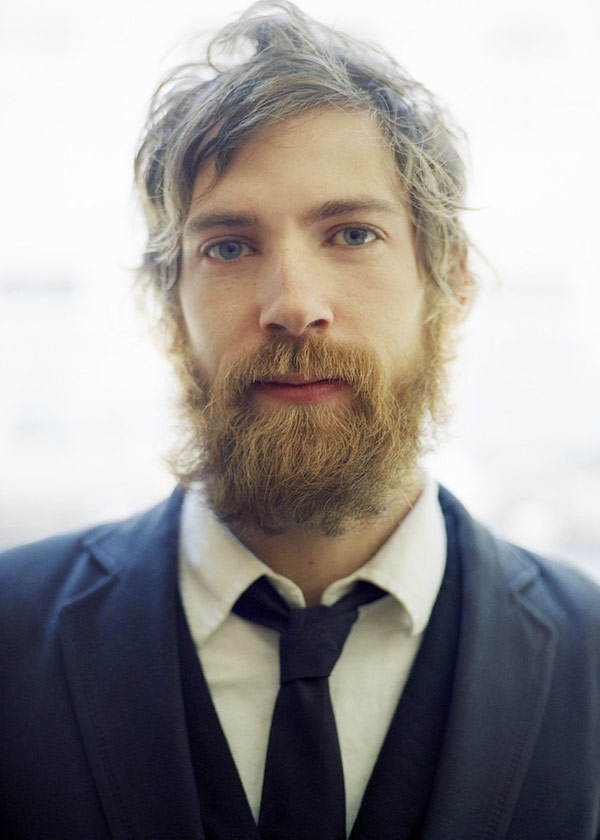
Ryan: That had to be a quite a big shift from Mexico City to New York.
It was such a culture shock. I saw quite a bit of poverty when I was there. I went on road trips outside of Mexico City and saw people really living with nothing. I went from that to photo shoots in NY with insane catering where half the food doesn’t get eaten and every conversation is about that new restaurant or a pair of shoes—it was a little crazy, but now I’m in deep.
Tina: Were you doing photography in Mexico?
Yeah, but first I spent a good six months learning Spanish because I didn’t want to go into meetings and expect people to speak English. Most people at ad agencies and magazines do speak English, but I didn’t want to assume; I wanted to be respectful.
After six months, I started showing my book. Mexico isn’t like New York; there, you can show your book, have a really good meeting, and then they’ll refer you to a friend at another agency. People send you around and it becomes a really small world, so it’s much easier to get in and start shooting. I also did ad jobs and editorial work all in Spanish when I was there and I thought, “If I can do that, then I can do anything!” Then, I came to NY and no one cared. I thought I was just going to take over and they’re like, “Who the fuck are you?” That was a bit of a bummer because I was so pumped.
That reminds me—the other day when I was on a job, somebody said something to me that I really loved. They said, “Nobody passively lives in New York. You don’t move here and hate it, but stay anyway. You have to really want to live here because it’s a really hard city to live in.” I thought that was really romantic and magical because everybody who is here really wants to be here and that makes for a really interesting city. I love it here. I’ve been here for seven years and the longer you’re here, the more it just sucks you in.
You grew up in California. Was creativity a part of your childhood?
My parents were kind of hippies. I would say things like, “I’m bored,” and my mom would say, “Well, you have to find something to do.” There wasn’t TV. It was always like, figure it out.
My mom is creative in her own way and was really interested in textile design, but she grew up in the 1950’s and 60’s when it was hard for women to break through and do that kind of thing. She once had a professor tell her that quilting was a craft and not art; it just kind of killed her. My dad is a businessman and I think there’s also creativity in that. So yes, both my parents are creative, but I wasn’t surrounded by creativity. I think that put me at a disadvantage, but I’m working through it. I wish I would’ve grown up around creative stuff, but what are you gonna do? I’m making up for it now!
Did you have an “aha” moment when you knew that photography was what you wanted to do?
Oh. That’s so funny because all these photographers have great stories about how they have this camera that their grandpa gave to them when they were six years old. I love those stories, but my “aha” moment was different.
I partied a lot in high school. It was fun, but then in my senior year, I had this moment where I thought, “Oh my god. I have to get myself together or I’m going to be working some shitty job the rest of my life.” I realized that if I didn’t get it together, no one was going to do it for me. Photography was a default for me because I was good at it and I had a lot of fun doing it. I loved literature and writing, but I realized that that world is really brainy and intellectual and that’s just not who I am. Photography suits my personality so much more.
Did you have any mentors along the way?
Man. My mom had this friend, Judith James, and I don’t think I would be a photographer if it wasn’t for her. She ran a poetry magazine named Sgrafitto and she put one of my photos on the cover of her magazine—that was the very first time I was printed. Also, I gave her some negatives one day and shortly after that, she came over to my house and had put the photos onto a CD. This was in 1995 and I was like, “How did this happen?” I couldn’t comprehend how my photos got from the negative onto the CD. (laughing) She always encouraged me and gave me that little push that I needed.
And then my mom. Well, both of my parents—actually, all my parents because I have a lot of them; everyone is divorced and remarried. They were all so amazing and supportive. They’ve always said, “Do what makes you happy.” For them, it wasn’t about the money and that was really liberating. I don’t think a lot of people’s parents do that. It was so helpful and made it easier to have the support of my parents.
Going back to that “aha” moment—I did have a moment in high school when things clicked for me. I was looking at the back of a Beastie Boys CD and saw that Ari Marcopoulos shot all the album artwork. I looked at his name and thought, “Somebody got paid to shoot this.” That was the first time I saw someone’s name attached to a photograph. I was slowly starting to figure it out. And then I went to Art Center and got whipped into shape; this whole world unfolded in front of my eyes and I very quickly learned what photography could be.
Was there a point in your life when you decided to take a big risk to move forward?
Transitioning from assisting to shooting is a really hard transition on multiple levels. Obviously, one of the main factors is money. When I first moved to New York, I was assisting, waiting tables, and doing random jobs to pay my bills and it was impossible to put dedicated energy into my work.
I was shooting as much as I could and going to magazines all the time, but you have to go to magazines and kind of stretch the truth when they ask what you’ve been working on. When you haven’t been doing any client work, what do you say to that? At the time, that kind of thing was really stressful, but now I realize it’s all about how you frame something. If somebody says, “What have you been working on?” all you have to do is get really excited about something—a portrait that you’ve done recently or a project you have coming up. Just because it’s not the cover of W, doesn’t mean that it’s not important or valid. People want to know that you’re passionate about what you do and half of the time I think they’re asking questions just to see if you can talk and not be weird. If they’re going to hire you for a shoot, they don’t want you to be an idiot.
Back to the big risk. I was doing all of those jobs and it was really tough. Not only that, but when you’re assisting on a shoot, people don’t always treat you that great. Then you have to go on your own shoot and be this really confident, pulled together person. For me, those were two different personalities and I found it hard to transition back and forth.
Meanwhile, a couple friends of mine who run a design agency in LA called National Forest had been art directing the Urban Outfitters catalog for about a year. I was dying to get in there, but their asses were on the line and I’m sure they felt like they couldn’t take a risk on someone who might fuck up a shoot. I kept trying and they finally gave me a little one day test shoot. It was piggybacked onto the larger shoot, so there wasn’t as much riding on my one day.
Then, for the next UO catalog, their regular photographer was unavailable because she was having a show in Europe. The catalog went in-house and the person who was the art director at the time asked who had shot the last one. He was told, “Angela and this girl, Anna Wolf.” The art director said, “Well, we’ll just hire Anna Wolf.” That was a super lucky break; I just happened to be next in line.
I did the Urban Outfitters shoot for two weeks and made more money than I had the entire time I was in NY. After that, I decided to quit my waitressing job and not do any assisting for six months. At that time, my overhead was incredibly low. I was living in Clinton Hill; I had a roommate; I had minimal expenses; and I was used to being broke, so I just rode that wave. I decided to do a massive promo and go to every meeting and name-drop Urban Outfitters until I couldn’t stand saying their name anymore. There were definitely times when I thought I was going to have to get a waitressing job again—when the phone didn’t ring or jobs weren’t coming in—but I managed to do it.
That transition is such a hard one and I was lucky that I didn’t have a lot of expenses. That meant I really could spent six months dedicated to meetings, promotion, shooting, and getting into that headspace of being a professional photographer. It’s so hard to wait tables and be someone’s bitch and then go on a shoot and have to be a baller. So, now I’m just a baller all the time.
(all laughing)
This is a side note, but I have to say that I think one of the best things that could have ever happened to me is not having help and not having money. I do know people whose parents have supported them through the years and I think that’s great, but I also think it can do a disservice. When you’re freaked out about how you’re going to pay your rent, that makes you hustle. I feel lucky that I have a family that would help me if I needed it, but I’m also glad that I’ve had to work for everything I have because it’s made me work harder. I think there’s a healthy balance.
“…one of the best things that could have ever happened to me is not having help and not having money…When you’re freaked out about how you’re going to pay your rent, that makes you hustle.”
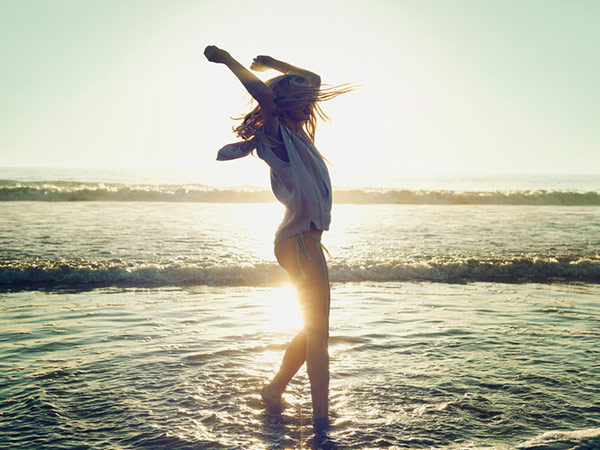
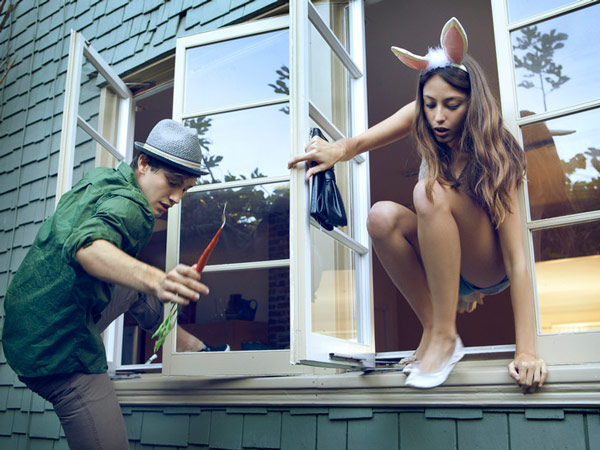
Do you feel a responsibility to contribute to something bigger than yourself?
That’s always a big thing for me. Photography is so wonderful and I’m lucky to have this job, but I also think that it can be pretty superficial. I’m compelled to do other things like community service and donating to charities that I believe in. Because of the work I do, I don’t have a lot of time to dedicate to anything else; balancing my personal life, my health, my family, and photography is so challenging. And living in New York stretches you really thin really fast; there’s never enough time.
I have done stuff in the past. I was a Big Sister for two years, which was awesome. I’d go out to Queens one day a week, we’d hang out, and then I’d come back to Brooklyn. I’d love to do something like that again, but I’m just being selfish with my time right now—I’m trying to be okay with that because I know that at some point in the future, when things mellow out or I’m making more money, I’m going to do something in addition to photography. When you’re trying to get your career off the ground, it’s hard to do everything.
Did the time you spent in Mexico give you a broader worldview in regards to what you just talked about?
I don’t know. I’m a pretty sensitive and compassionate person, so I think that’s something that’s always been with me and always will be. That’s a hard thing in New York because you have to have a thick skin; you can’t just tell everyone your every emotion all the time. It’s not good.
Tina: I have a hard time with that. I spent 12 years working in human services and sometimes the situations I see people go through are just heart-breaking.
I know. I see this homeless guy in the park every day when I walk my dog. I think he has a mental illness because I’ve talked to him a lot and he always talks about how people are out to get him. My boyfriend and I have given him stuff in the winter and will give him money every once and a while. I’ve offered to help him get to a shelter, but he thinks they’re conspiring against him. What can you do? It’s heartbreaking. I don’t understand how our society lets that happen.
Are you satisfied creatively?
Never. I think there’s a good place to be where you like your work, but you want to do more. I think that you have to be unsatisfied to be successful. You have to keep wanting to make better work all the time because it keeps you moving forward. Of course, that can also be a slippery slope because if you’re never happy with what you’re doing, that’s unhealthy.
Being creative is hard and for people like us who are sensitive, it’s hard not to let everything get to you. I think that being a photographer is the best kind of therapy you could ever have. To get through it, you have to face your demons in a serious way. You might get kicked down and beat up, but then you get back up and do it all over again the next day.
Any thoughts about the next 5 to 10 years.
I see a lot of video in my future because I think that’s the future of photography, so I’m doing a lot of work trying to get my video act together.
Really, I want to be doing the same kind of work I’m already doing except I want to be doing it better and be doing bigger productions with more money. I want to be shooting every day. Wait, do I really want that? That sounds like a lot of work. Okay, I want to be shooting four days a week and then I can have a three day weekend.
And I want a house in Upstate NY.
Is there anything you would do differently if you had to do it over?
No, I don’t think so. I’m pretty happy. I think happiness is fleeting, but I have a good life. I feel fortunate. Every mistake and every hard thing that’s every happened to me has put me where I am now and I feel good about that.
If you could give one piece of advice to another photographer starting out, what would it be?
Work hard every day. That means wake up at 7 or 8 o’clock like the rest of the world does and work a seven, eight, or nine hour day for five days a week—all year long. I don’t know what people think, but they don’t realize the amount of work that goes into being a freelance photographer. There’s no brunch with friends on Wednesday at noon in Williamsburg. No! Wake up, work, and work more.
That’s good advice. How does living in New York impact your creativity?
I think about that a lot. I don’t know if NYC is a very good fit for my personality because there’s a lot going on and I have a tendency to feel drained and exhausted. If I was out in nature or on a boat listening to music and watching the waves, I might be more inspired. But a lot of photography is production and a lot of what I do isn’t creative. I think I really had to relearn how to be creative when I moved here. I have to set time aside to do that and make it a part of my life. Otherwise, I’ll get bogged down with all of the busywork because there is so much of that that needs to be done in order to run a photo business.
Is it important to you to be part of a creative community of people?
Yeah. All my friends are artists and I love it. I need to be around people who are passionate and inspired by what they do.
Ryan: Does it challenge you to do better work?
Definitely. Some of my closest girlfriends are photographers and I have a healthy jealousy of them. When they get a job that I really want, I’m like, “I gotta get my shit together.” I like it when they get great jobs because it makes me want better jobs. They inspire me. If one of them does a great test shoot, I think, “I gotta do a test shoot.” I want to have stuff to show them.
What does a typical day look like for you?
It depends on if I’m shooting or working in the office.
If I’m on a shoot, it looks like a shoot: catering, hair and makeup, models, etcetera.
If I’m at the office working, it’s a lot of emails to clients, production calls, editing, invoices—busywork. I have interns that come in for three month cycles. They help with scanning stuff, running errands, and other boring, but necessary things.
Tina: Do you work from a studio?
I work from a home office. I used to have a studio, but I travel a lot so it was like having a boyfriend that you don’t live with and half of your stuff is at his house and half is at your house and you’re constantly going back and forth. It was too much. It made more sense to move my office to my home.
I still have all my crap at the studio. I used to share it with my boyfriend and he still works there. I keep all my gear and all my negatives there. I don’t think I could do it without that kind of space and it’s just a ten minute walk from home, which is nice.
Current album on repeat or favorite band?
I’ve been loving Metronomy and Little Dragon lately. Also, the more mellow stuff is always on rotation—Bon Iver and Timber Timbre who my friend, Brigitte, turned me onto. I’ve been listening to Spotify and working on my two week playlist so I can bring it to a shoot, hit play, and have the entire thing be awesome music. There was a while where I would put my iPod on and it would be like 40 songs of R. Kelly. I’m like, I need to get this in shape.
Favorite movies or TV shows?
Game of Thrones.
We’ve never seen it.
Ugh. I envy you. I wish I could go back and experience it all over again. I’m also super into Mad Men and The Killing. I was obsessed with Friday Night Lights for a while and I think that might be favorite show of all time.
Do you have a favorite book?
A Secret History by Donna Tart. I read that last year and it blew my mind. But I don’t know if I have a favorite book of all time. Shogun maybe? So good.
Favorite food?
Salad. I love my greens.
Are you vegetarian?
I was for ten years and I started eating meat a few months ago. It’s awesome. I had a hot dog the other day for the first time in 15 years and it was epic. And I love bacon. I’ve started eating it on my breakfast sandwiches and now I wonder how I’ve been eating breakfast sandwiches without it for so long.
Last one—what kind of legacy do you hope to leave?
I don’t know if I care about my legacy. To me, it’s more important to have a positive effect on the people around me. I guess that in a way, that is my legacy—if I can have a positive influence on someone close to me and they can influence someone else in turn, then that’s what is important to me. I want to lead a healthy life and be good to my family and the people around me, whether they are a friend or a model or a client.
As far as my work goes, I like to have a fun set and I like my shoots to be drama free. That’s important to me because we’re so privileged to have the jobs we have—to not enjoy that would be terrible. I want to make really good work, but I don’t care if someone’s looking at my pictures a hundred years from now—I just want to do it up right in the moment.
“I want to make really good work, but I don’t care if someone’s looking at my pictures a hundred years from now—I just want to do it up right in the moment.”
